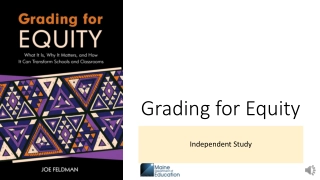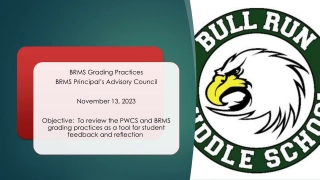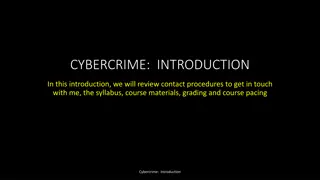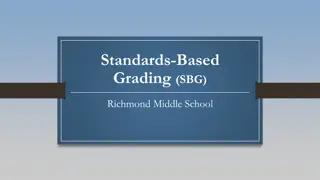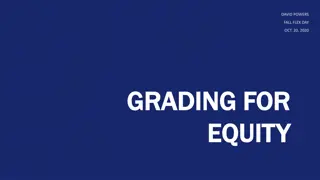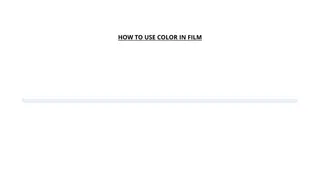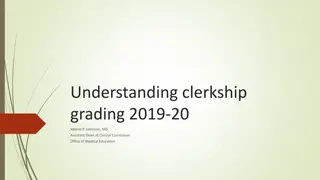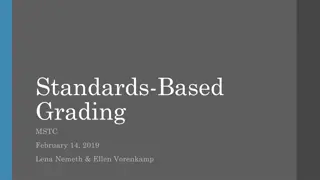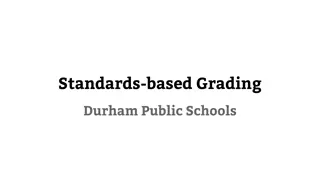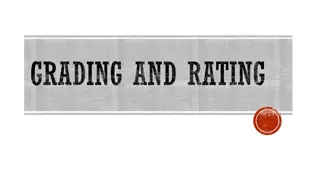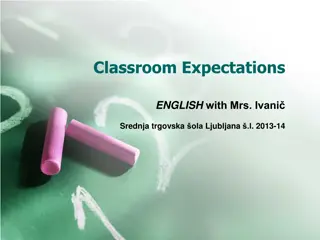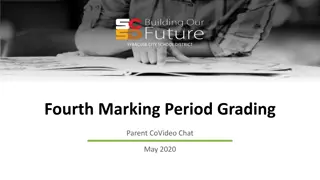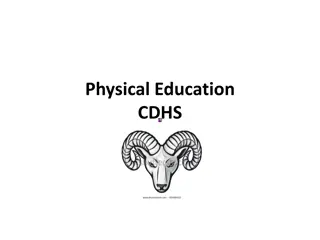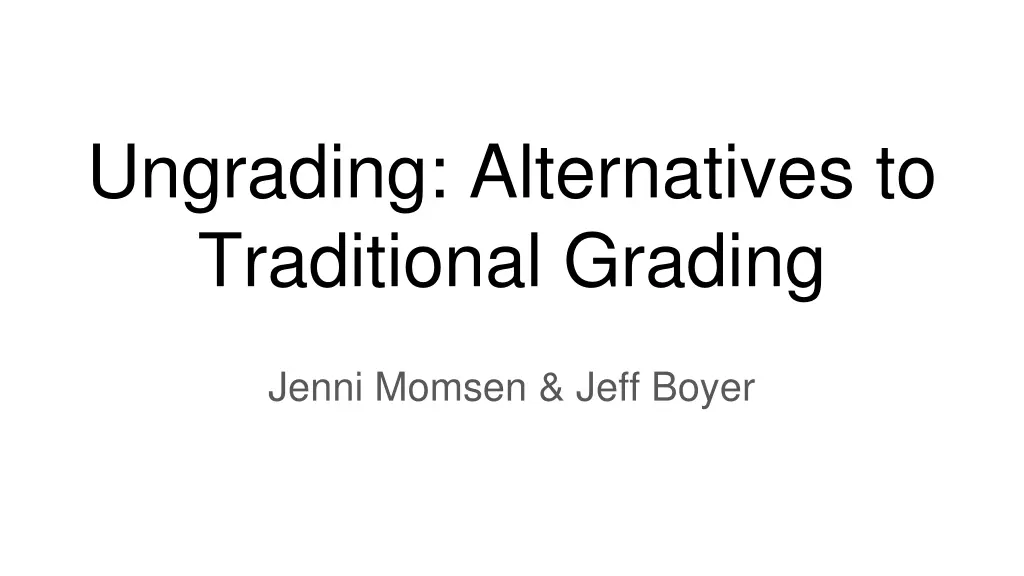
Rethinking Traditional Grading Systems
Explore the concept of ungrading as an alternative to traditional grading systems in education. Understand the harmful effects of grading on learning, consider different approaches to assessing students, and delve into the movement towards eliminating grades entirely. Discover why grades may not effectively motivate learning and how traditional grading systems can be subjective and biased.
Download Presentation

Please find below an Image/Link to download the presentation.
The content on the website is provided AS IS for your information and personal use only. It may not be sold, licensed, or shared on other websites without obtaining consent from the author. If you encounter any issues during the download, it is possible that the publisher has removed the file from their server.
You are allowed to download the files provided on this website for personal or commercial use, subject to the condition that they are used lawfully. All files are the property of their respective owners.
The content on the website is provided AS IS for your information and personal use only. It may not be sold, licensed, or shared on other websites without obtaining consent from the author.
E N D
Presentation Transcript
Ungrading: Alternatives to Traditional Grading Jenni Momsen & Jeff Boyer
First, an advertisement! If you want to discuss ungrading even more, please join us for: - Book club (sign up), discussing Ungrading: Why rating students undermines learning (and what to do instead) by Susan Blum A Faculty Learning Community, focused on further discussion and implementation -
Driving questions - - - What does a grade mean? Can grades and grading harm learning? What are alternatives to traditional grading? All in 30 minutes or your money back!
You decide! Whats the grade? Let s watch a short video, What Learning Looks Like (1) Reflect. What s the first word that comes to mind after watching this video? Share them in the chat! Don t worry if you repeat what someone else says.
You decide! Whats the grade? (2) Discuss. What grade would you give this student, in your skateboarding class? Why? What elements are you grading on or for? Share your ideas in the chat, and we ll compile them. Pass A: final product, performed 1 of 3 critical elements A+: learn from mistakes Scores increase after each attempt Best 2 performances and average Use final score Competency-based = pass
Ungrading: a movement towards eliminating grades entirely Why would we want to eliminate grades?!
Traditional grading systems leave no room for mistakes - Mistakes are critical to the learning process, yet traditional grading judges every action Points and grades do not motivate learning, they motivate performance - Feldman 2019
Traditional grading systems are subjective and biased - We are fallible - We do not grade consistently - We carry implicit biases into grading - Our assessments are not valid or reliable We grade everything - Exams - Homework turned in on time - Effort and class participation Much of what we grade reflects our students environment and not their learning (e.g., internet access, work responsibilities, family obligations, COVID) How valid is the evidence we collect of students knowledge? - - - Feldman 2019
Traditional grading systems are demotivating - How often do we hear students say they don t understand how their grade is calculated? Could omnibus grading - several categories of class activities, weighted differently - be a cause of confusion? Grades encourage performance orientations (versus mastery orientations), which we know is demotivating - Feldman 2019
Ungrading: a movement towards eliminating grades entirely - Grades inhibit learning - Penalize mistakes - Shifting the focus from learning towards performance - Grades penalize risk taking - Students are risk averse and opt for easy tasks - It is strategic to avoid activities where they are unsure or are likely to make mistakes - Grades promote shallow learning and superficial engagement with learning
Ungrading: An unfortunate term for a world of possibilities - Refocus the classroom on learning, not ranking/grades/grading/ points, etc. - Embrace flexibility - Build trust - Center and prioritize descriptive feedback
Ungrading: Embracing flexibility - Let students lead the learning process - Invite students to set personal learning goals within the domain of the course - Collaborate with students to discuss their progress on meeting their learning goals - Collaborate with students to identify a final grade Build in reflective assignments - Enable students to complete self evaluations and reflections across the semester - Use these reflections to engage in meaningful discussions (written, verbal) with students Reconsider strict deadlines - -
Ungrading: Building trust - Share with your students! - Your philosophy of learning with students - share early and often - Learning goals/objectives - The why behind each assessment Trust your students - Assume they are trying their best - Assume they do not want to cheat Recognize your students as humans - They are diverse! - Each has different pressures on their time and energy - -
Ungrading: Centering descriptive feedback - Feedback is one of the most powerful instructional tools (Hattie 2009) Descriptive feedback in the absence of evaluative feedback (a grade) promotes learning (Brookhart 2008) Providing feedback - multiple ways - Pen & paper - feedback on individual assignments - Feedback on group assignments - Peer feedback - Learning assistants (LAs) - Self evaluation - -
Ungrading: Resources And a syllabus & more so you can see this in action - - - - - Biol 151, Spring 2021 Biol 272, Fall 2020 Engl 222, Spring 2020 Rels 335, Spring 2020 MICR 352L, General Microbiology II Laboratory: Final reflection to determine reported grade
Dont forget! If you want to discuss ungrading even more, please join us for: - Book club (sign up), discussing Ungrading: Why rating students undermines learning (and what to do instead) by Susan Blum A Faculty Learning Community, focused on further discussion and implementation Jeff Boyer, jeffrey.boyer@ndsu.edu Jenni Momsen, jennifer.momsen@ndsu.edu -

